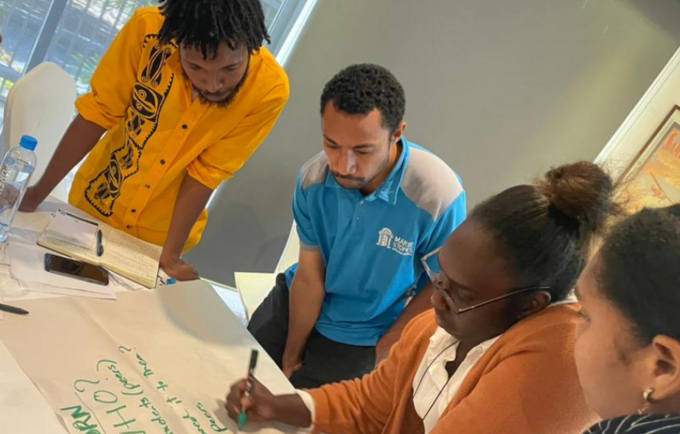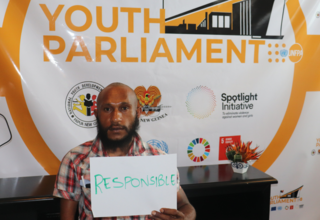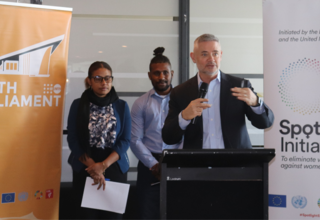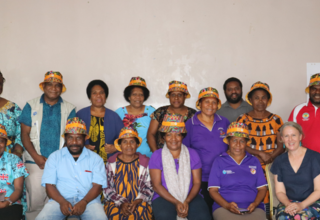It is day number 7 of the Sexual and Reproductive Health and Rights (SRHR) “101” and Facilitation Skills Workshop and 32 peer educators from selected provinces in the country are learning about Out-Of-School Family Life Education (OOS-FLE) program design.
This is the module taught for today. Tomorrow’s module will look at micro-teaching the OOS-FLE program design.
The 8-day workshop is a two part training package designed at addressing values, rights, and relationships, gender and consent, the internet and bystanders, and puberty and safe sex.
Mr. Robert Mafu, a peer educator participating in this training, shared his experiences and the challenges faced in community-based health education.
“In my area of Joyce Bay in the Port Moresby Southside, teenage pregnancy is quite high and the community court is not effective in resolving this issue,” shared Mr Mafu. “This is why CSE OOS is important in our communities to tackle these issues, including STI’s which is quite common and high among our teenagers and young adults in the community.”
Recent data from UNFPA, in association with the National Statistical Office, has revealed that 22% of 19-year-old women in Papua New Guinea have at least one child. 6% have at least two children.
“Peer educators need to be equipped to deliver this content in our communities and I am thankful to be part of this training because I see the need to talk about sex openly so that our young boys and girls can know what are the dangers of engaging in sexual activities too young. “
Mr. Mafu also talked about the training package and how it has broadened his knowledge as well.
“Sex and gender do not mean the same thing,” shared Mr Mafu. “I am glad I can differentiate that now. This training package is upgraded, user-friendly, and has been interpreted so well to us.”
The purpose of the SRHR “101” workshop is to support the peer educators with content knowledge and prepare them to facilitate directly to young people. Complementing this module is the Facilitation Skills workshop, which incorporates key aspects of managing conversations on the content, such as demonstrating Comprehensive Sexuality Education (CSE) best practice, the importance of value clarification, answering difficult questions about CSE, and applying group work techniques.
This training is being delivered by Family Planning Australia through its partnership with the United Nations Population Fund, through funding from the Spotlight Initiative to end violence against women and girls. The curriculum development has been made possible through ongoing leadership from the National Department of Education and ChildFund as part of discussions to adapt the Comprehensive Sexual Education Out-Of-School curricula from the Pacific Region and make it more relevant for implementation in PNG.
According to the Technical Working Group, made up of the key stakeholders from the Department of Education and Department of Health, a key pillar in the successful implementation of CSE OOS in PNG is the training of current and future facilitators to equip them to support the roll out of the package in PNG. Following these intensive workshops, the curriculum will be trialled and reviewed before being rolled out nation-wide.




